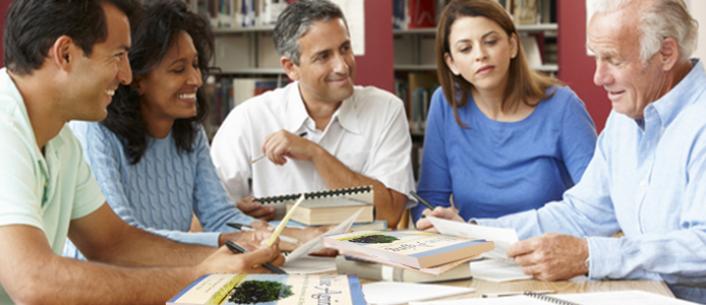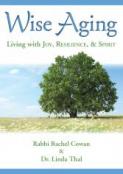- Home
- Play & Learn Home
- Online Enrichment
- Experience Modern Israel
- Israel It's Complicated
- Jewish and Me
- Jewish Holidays Jewish Values
- Jewish Values in Genesis and Jewish Values in Exodus
- Min Ha’aretz
- Our Place in the Universe
- Simply Seder
- The Prophets: Speaking Out for Justice
- Making T'filah Meaningful
- Make, Create, Celebrate
- Yom Haatzmaut Resources
- Hebrew Apps
- About The OLC
- What is the OLC?
- Introduction
- Get Started
- Resources
- OLC Content
- Parent Materials
- See My OLC Classes
- Store
Confronting Ageism by Aging Wisely Together, in Community
Written by Behrman House Staff, 20 of April, 2016
Baby boomers have been changing life in the U.S. since they were born. And now this year, as they begin turning 70, the generation that began not trusting anyone over 30 now has the opportunity to confront ageism in our society and possibly reverse some of the negative stereotypes about getting old.
“People are hungry for a narrative that rings true to our experience of growing older,” according to Ashton Applewhite, author of an anti-ageist blog recently featured in The Washington Post. While much of American society now considers it unacceptable to be openly sexist, racist, or homophobic, “old people are still fair game.”
And yet, it might be impossible to create this change without a healthier, more positive approach as we age ourselves. “We can’t tackle ageism if those of us on the older side of things are internalizing it ourselves–feeling like we’re over-the-hill, irrelevant,” says Marc Freedman, founder and CEO of encore.org, which focuses on second careers.
In the Jewish community, groups are coming together to help individuals approach aging mindfully, and to provide support as they confront the challenges as well as the new opportunities getting old affords. In the Boston area, The Jewish Journal recently featured a group at Temple Ahavat Achim, inspired by Rabbi Steven Lewis, that includes about 30 congregants, age 55-90, who study together using Wise Aging, by Rabbi Rachel Cowan and Dr. Linda Thal, led by TAA members Fern Miller and Dale Rosen.
“We are covering several really important topics – the meaning of this time in our lives, our bodies, relationships, conscious dying, legacy and stewardship. We are asking people to keep journals, we are teaching mindfulness and exploring the rich literature on aging,” said Miller. “Looking at one’s life is an opportunity for a spiritual quest. It has a universal appeal and transcends politics and religious views. This is in all of our hearts.”
According to Rabbi Lewis, the temple is the perfect place to begin to consider these topics. “Every year, we come into the High Holidays, in Elul and Tishrei, and there is the exercise of specifically thinking about the end of life – what happens if this is the last year I am going to be alive? What did I do wrong? How can I make it right? It is built into our calendar. This is one of the most difficult things for human beings to do, and Judaism has built in a structure for how to be clear-eyed about this,” said Rabbi Lewis. “This program is helping us to think about the reality of our lives – how do we live fully and realistically, and how do we connect to community, to tradition and to God, with all of the challenges of growing older?”
Miller believes this is a great model for synagogues and said that research shows that the single most important factor in staving off the ill effects of aging is staying connected and being part of community. “Connection is the antidote to loneliness,” she said. “We are redefining aging for us, and we don’t have to do this alone. We can do it together as a community.”
Read the full Washington Post article by Tara Barampour here.
Read the full Jewish Journal article by Amy Forman here.


